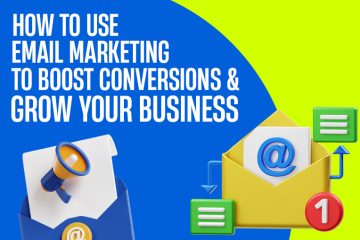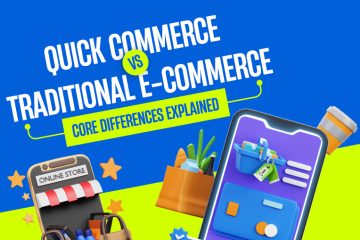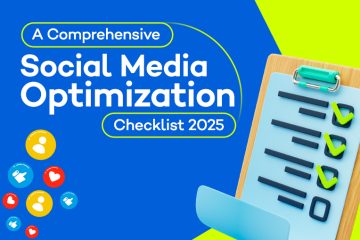Every business wants to be seen by potential customers, but in a crowded digital world, standing out is a challenge. That’s where PPC marketing comes in. With the right strategy, PPC ads can position your brand directly in front of your target audience, driving immediate traffic and measurable results.
PPC (Pay-Per-Click) marketing is one of the most effective ways to generate online visibility. By paying a fee each time someone clicks on your ad, you can drive qualified traffic to your website and increase your chances of conversion. Whether you’re just starting out or looking to refine your advertising strategy, understanding what PPC marketing is and how it works is the first step in unlocking its potential.
In this guide, we’ll explain the basics of PPC marketing, explore how it works, and offer tips for businesses to get started on the right foot.
What is PPC Marketing? Understanding the Basics
To get started with PPC marketing, it’s essential to understand what it is and how it works. Let’s break it down into simple terms.
1. What Exactly is PPC Marketing?
PPC marketing is a type of online advertising where advertisers pay each time a user clicks on their ad. It’s often associated with search engines like Google, but it can also appear on social media platforms, websites, and mobile apps. The primary goal of PPC is to drive traffic to a website while ensuring that the cost per click is lower than the revenue generated from those clicks.
The key aspect of PPC marketing is that advertisers only pay when users interact with their ads, hence the term “pay-per-click.” It’s a way to target users who are actively searching for products, services, or information related to your business, making it one of the most effective ways to reach potential customers.
2. How Does PPC Marketing Work?
PPC works by bidding for ad space on search engines or other platforms. Here’s a simplified version of the process:
-
Ad Auction: When a user performs a search query, search engines like Google run an auction to determine which ads will be displayed. The auction is based on several factors like the relevance of the ad, bid amount, and the quality score of the ad.
-
Keywords: Advertisers choose specific keywords that they want their ads to show for. These keywords should be closely related to their products or services.
-
Bid: Advertisers set a bid, which is the maximum amount they’re willing to pay for a click on their ad.
-
Ad Placement: If your ad wins the auction, it appears in the search results or on the platform’s ad space. The ad’s placement depends on the bid, ad quality, and relevance.
The more relevant your ad and keywords are, the higher the chances that users will click on your ad, leading to better results and a higher ROI.
Why PPC Marketing is Important for Your Business
PPC marketing is a powerful tool that can drive immediate results for businesses of all sizes. Whether you’re a startup or a well-established company, understanding the value of PPC marketing is essential to maximizing your marketing efforts. Here’s why PPC should be a key component of your marketing strategy.
1. Immediate Traffic and Results
One of the most significant advantages of PPC is the speed at which it delivers results. Unlike SEO, which can take time to build momentum and rank on search engines, PPC marketing can drive traffic to your website as soon as your campaign goes live. This is particularly beneficial for businesses looking to boost their online presence quickly.
For businesses with limited time or resources, PPC provides a shortcut to achieving visibility, capturing clicks, and driving immediate sales.
2. Highly Targeted Audience
With PPC, you have the ability to target specific demographics, locations, devices, and even times of day. This level of targeting ensures that your ads are shown only to users who are most likely to be interested in your products or services.
For example, a performance marketing agency can help you refine your audience targeting by focusing on specific user behaviors, search intent, and location, ensuring that every click is valuable.
3. Cost Control and Flexibility
One of the biggest concerns in advertising is budget management. With PPC marketing, you have complete control over how much you spend. You can set daily budgets, adjust bids, and pause campaigns when necessary to stay within your budget.
Furthermore, PPC allows you to allocate more resources to high-performing ads while reducing spend on underperforming ones. This flexibility makes PPC marketing suitable for businesses of all sizes, from small businesses to large enterprises.
4. Trackable ROI and Performance
Unlike many traditional forms of advertising, PPC allows you to track your ROI directly. You can monitor how many clicks your ads receive, the cost per click (CPC), and the conversions (sales, leads, sign-ups, etc.) generated by those clicks. This means you can constantly measure the effectiveness of your campaigns and make data-driven adjustments to improve results.
With the right tools and tracking in place, you can easily evaluate the performance of your ads and see exactly where your budget is being spent.
5. Brand Awareness and Visibility
Even if users don’t click on your ad, they still see it. PPC ads are displayed at the top or bottom of search results, giving your brand valuable exposure. Over time, frequent visibility can lead to greater brand awareness and recognition, especially when combined with SEO efforts.
By combining PPC with other marketing strategies like SEO, your business can dominate search results, driving both paid and organic traffic.
How to Get Started with PPC Marketing
Starting with PPC marketing can seem overwhelming, but with the right approach and tools, it can quickly become one of the most powerful marketing strategies for your business. Here’s a step-by-step guide on how to get started with PPC marketing.
1. Set Clear Campaign Goals
Before launching any PPC campaign, it’s essential to define your objectives. What do you want to achieve with your PPC ads? Common goals include:
-
Increasing website traffic: Drive more visitors to your site.
-
Boosting sales or conversions: Encourage users to make a purchase or sign up.
-
Brand awareness: Make sure your brand is visible to a larger audience.
-
Lead generation: Capture contact information for future marketing.
Setting clear goals will help you determine the best campaign strategy, target audience, and bidding structure.
2. Conduct Keyword Research
Keywords are the backbone of any successful PPC campaign. Conduct thorough keyword research to identify the search terms your target audience is using. Tools like Google Keyword Planner, SEMrush, or Ahrefs can help you discover relevant keywords.
When choosing keywords, aim for a mix of:
-
Short-tail keywords (general terms like “buy shoes”)
-
Long-tail keywords (more specific, like “buy running shoes for men”)
Long-tail keywords are often less competitive and can result in higher conversion rates since they cater to more specific searches.
3. Create Compelling Ad Copy
Your ad copy should clearly communicate your offer and compel users to click. Here are a few tips for writing effective PPC ad copy:
-
Include a strong call to action (CTA): Phrases like “Buy Now,” “Get Started,” or “Learn More” encourage users to take action.
-
Highlight unique selling points (USPs): Mention what sets you apart from your competitors, like free shipping, discounts, or 24/7 support.
-
Use relevant keywords: Including keywords from your research can make your ad more relevant and improve your Quality Score in Google Ads.
4. Design a Landing Page Optimized for Conversions
When users click on your ad, they should land on a page that matches the offer and provides a clear path for conversion. A well-optimized landing page can significantly improve your campaign’s performance. Consider these factors:
-
Clear headline: Match the ad copy with the headline on the landing page for consistency.
-
Simple design: Keep the design clean and focused on the conversion goal, whether it’s making a purchase or filling out a form.
-
Strong CTA: Make sure the conversion action is clear and easy to complete.
5. Set Your Budget and Bids
Once your ad copy and keywords are set, it’s time to determine your budget and bidding strategy. PPC campaigns can be run on a daily budget or a lifetime budget, depending on how much you want to spend over a period.
When it comes to bidding:
-
Manual bidding allows you to set your own bid for each click.
-
Automated bidding helps Google decide the best bid based on your campaign goals.
Start with a modest budget and adjust based on performance. With a good bidding strategy, you can get the best results at the lowest cost.
6. Monitor and Optimize Campaigns
Once your PPC campaign is live, it’s essential to continuously monitor its performance. Track metrics like CTR, CPC, conversion rate, and Quality Score. Use this data to make adjustments to your ads, keywords, and bids to improve results.
Common optimization tactics include:
-
A/B testing: Test different ad copies or landing pages to see which performs better.
-
Negative keywords: Use negative keywords to filter out irrelevant searches and reduce wasted ad spend.
-
Refining targeting: Narrow your audience targeting to ensure your ads are shown to the most relevant users.
Conclusion
PPC marketing is a highly effective strategy that allows businesses to reach their target audience quickly, drive valuable traffic, and increase sales. With the right strategy in place, PPC can deliver immediate results and measurable ROI. By understanding the basics, setting clear goals, conducting thorough keyword research, and continuously optimizing your campaigns, you can make the most out of your advertising budget. Whether you’re a small business looking to increase your online presence or a large enterprise aiming for more targeted conversions, PPC marketing provides the flexibility and control needed to achieve success.
To ensure that your campaigns are optimized for the best performance, consider working with a performance marketing agency or an SEO company in Delhi. These experts specialize in creating and managing high-performing PPC campaigns, making sure every dollar spent brings you closer to your business goals. With the right support and strategy, PPC marketing can become a powerful growth driver for your business and help you achieve sustained online success.





0 Comments